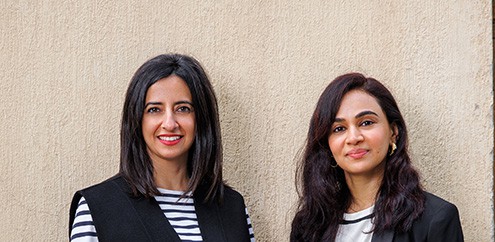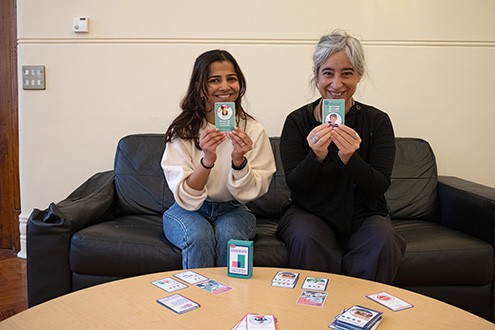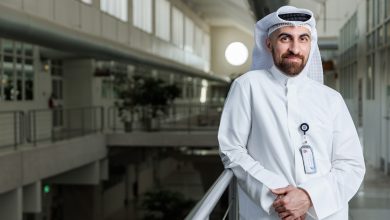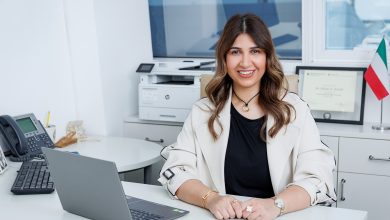Reimagining Public Spaces in Kuwait

In a colorful, vibrant room at Sheikh Abdullah Al Salem Cultural Centre, a group of kids was asked to draw what they thought was missing from Kuwait’s streets. The drawings that resulted were full of trees, flowers, bicycles, bicycle lanes, and animals – things you rarely see in Kuwait’s urban landscape. The main element in almost all the drawings? People; randomly meeting in public spaces, walking, and running.
“It was eye opening; these are just basic needs that kids can intuitively recognize are missing,” said Sharifa Alshalfan, an architect and educator.
Shalfan; together with Alexandra Gomes, a Research Fellow at the London School of Economics and Political Science (LSE); Asseel Al-Ragam, an associate professor of architecture; and Tanushree Agarwal, a London-based Urban Regeneration Consultant, created Kuwaitscapes – a card game to raise awareness about the importance of sound urban planning, as one of the deliverables of research project, “Public Space in Kuwait: From user behavior to policy-making”, under the LSE Kuwait Programme research project funded by the Kuwait Foundation for the Advancement of Sciences (KFAS).
Kuwaitscapes encourages engaged reflection and discourse about public space in Kuwait through a fun game of cards, allowing children and adults alike to understand what challenges and opportunities face Kuwait’s residential neighborhoods and public spaces.
The research project first required identifying Kuwait’s urbanization patterns, the main being Urban Sprawl, which is the growth of urban developments, such as housing, commercial development, and roads, on undeveloped land near a city, with little to no comprehensive urban planning. Another form of Urban Sprawl that applies to Kuwait is Leap-frogging, which refers to the lack of a relationship between subdivisions that are separated by undeveloped land.
Due to the Urban Sprawl of Kuwait, there is a great dependency on cars, according to Gomes, because of the structure, Sprawl, distances to the center, and the lack of alternative public transport beyond buses.
“Chronic diseases, diabetes, [high] cholesterol, all of those are born out of a car dependent city,” said Al-Ragam. “We’ve got air pollution because of, again, car dependent city planning.”
It also leads to rare positive use of public space, according to Al-Ragam. Streets and public parks are neglected because they’re not used often – giving rise to a severe lack of walkable areas.
A less tangible negative effect is quality of life, said Alshalfan. Your standard of living is raised because you can afford to buy a nice car or house. “However, I can raise your standard of living as much as I want, but if I don’t fix the street in front of your house, your quality of life will be affected,” Alshalfan said.
With a car dependent city, you also end up with lots of traffic. “Being stuck in traffic is also not fun,” Alshalfan said. “You get stressed, annoyed, and lose valuable time that you could have used productively.”
These are things that need to be given more attention because according to Alshalfan, quality of life should be taken into consideration by the relevant governmental entities.
“If you engage public spaces, streets, and parks, you begin to understand the conditions they’re in,” said Al-Ragam. They’re in dire need of maintenance. If you don’t engage them, you won’t demand for better spaces.”
Often left out of the conversation are kids and non-nationals in Kuwait. “There are a lot of people that need public spaces, but their voices are not carried to decision makers,” Al-Ragam said.
Another issue is walking in the streets, or even taking the bus doesn’t feel safe, according to Alshalfan. The bus barely pauses at a stop, you often have to hop on while it’s still moving, and the driver is speeding to get to as many stops as possible, Alshalfan said.
“Once we were doing field work and we almost got run over by two cars during the same day because we had to walk in the street rather than the sidewalk as the sidewalks don’t exist or are occupied by cars,” Gomes said. “Curbs in particular; visbility is very short. Why would you walk if you put your life in danger or your kid’s life in danger?”

Many believe the reason people don’t walk in Kuwait is due to the heat but what they demonstrated in the study is that even when the weather is acceptable, people still don’t use public spaces.
“We are not saying the weather doesn’t influence because it does in extreme temperatures,” said Gomes. “But most of the year, it’s quite comfortable to be outdoors but because the public spaces are not prepared, people end up not using them.”
However, there are many ways to try and reduce the extreme temperatures, according to Alshalfan.
“We can use materials that don’t radiate heat, use shading and misting, plant more trees in urban settings,” Alshalfan said. “There’s studies that have shown the temperature can be lowered by 15 degrees Celsius by applying some of these changes.”
From their analysis, the team discovered they had to look at urban design, urban planning, and individual behavior. Applying some of their suggested changes would introduce more environmentally friendly mobility patterns.
“If you create a city that is friendly to pedestrians and cyclists, people don’t need to take their car to do these activities,” Alshalfan said about driving to the supermarket or local park.
It can start to change people’s perceptions of what streets and public spaces are. “Because of the car-centric society, they’re seen as a means to an end,” said Agarwal. “It changes the community as a whole, once you have that slight shift in thinking.”
They’re hoping this would lead to more random interactions with people, better mental health and well-being, and more exercising outdoors, among other things.
قالت غوميز: “لولا مركز الشرق الأوسط في كلية لندن للاقتصاد وبرنامج كلية لندن للاقتصاد – الكويت ومؤسسة الكويت للتقدم العلمي التي أتاحت لنا فرصة التواصل هذه، لما تسنى لنا أن نكون هنا اليوم. البرامج التي تمولها Kuwait Foundation for the Advancement of Sciences مهمة حقًا وقيّمة عندما يتعلق الأمر بالبحث العلمي. وتمثل هذه الأبحاث قيمة مضافة لتطوير سياسات قائمة على الأدلة العلمية في الكويت. أعتقد أن عملنا هذا شهادة ملموسة على ذلك التعاون”.
By Reham Alawadhi
Photos: Bandele Zuberi




